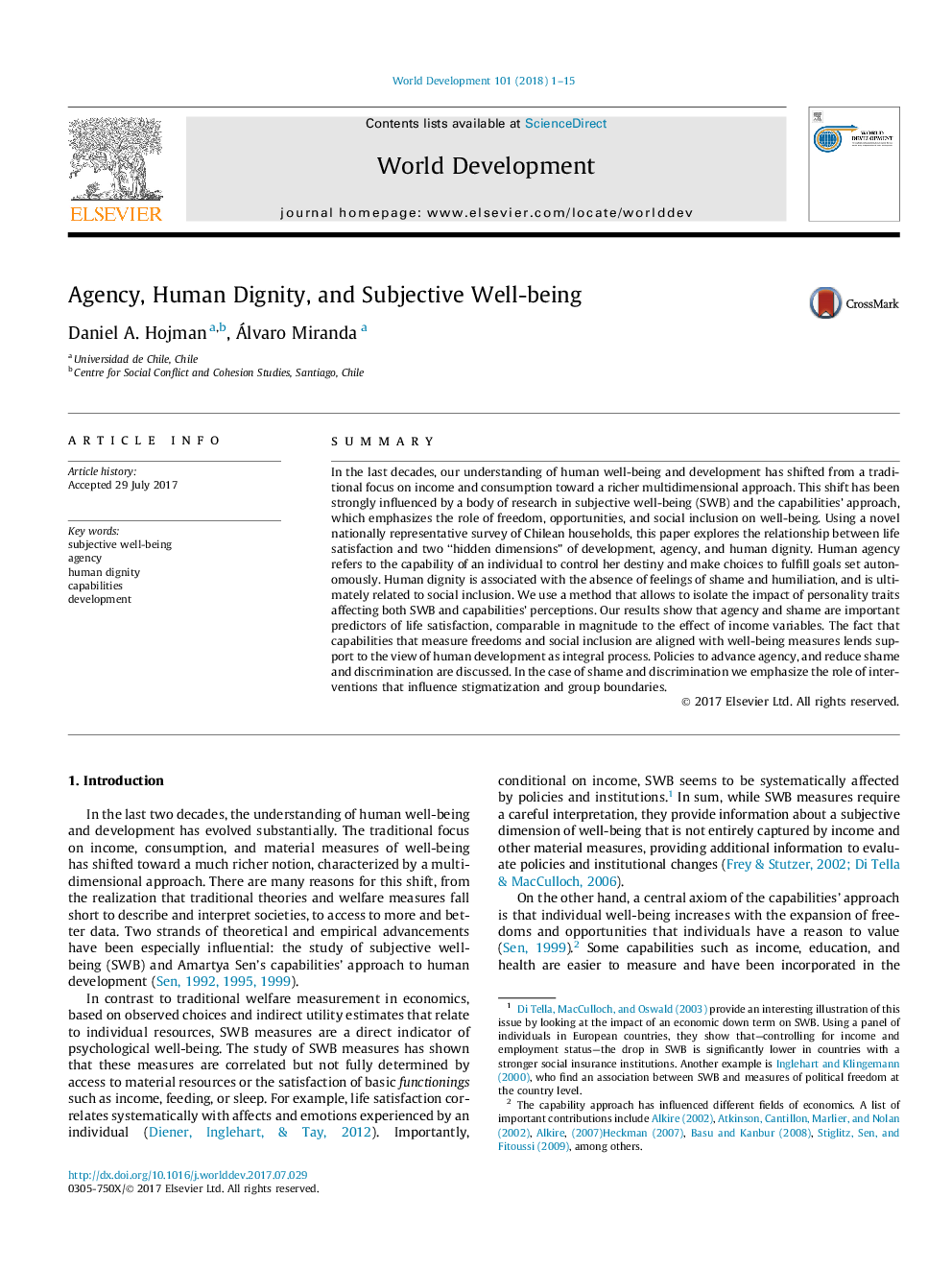ترجمه فارسی عنوان مقاله
آژانس، کرامت انسانی و رفاه ذهنی
عنوان انگلیسی
Agency, Human Dignity, and Subjective Well-being
| کد مقاله | سال انتشار | تعداد صفحات مقاله انگلیسی |
|---|---|---|
| 121677 | 2018 | 15 صفحه PDF |
منبع

Publisher : Elsevier - Science Direct (الزویر - ساینس دایرکت)
Journal : World Development, Volume 101, January 2018, Pages 1-15
ترجمه کلمات کلیدی
رفاه ذهنی، آژانس، شان انسان، قابلیت ها، توسعه،
کلمات کلیدی انگلیسی
subjective well-being; agency; human dignity; capabilities; development;

